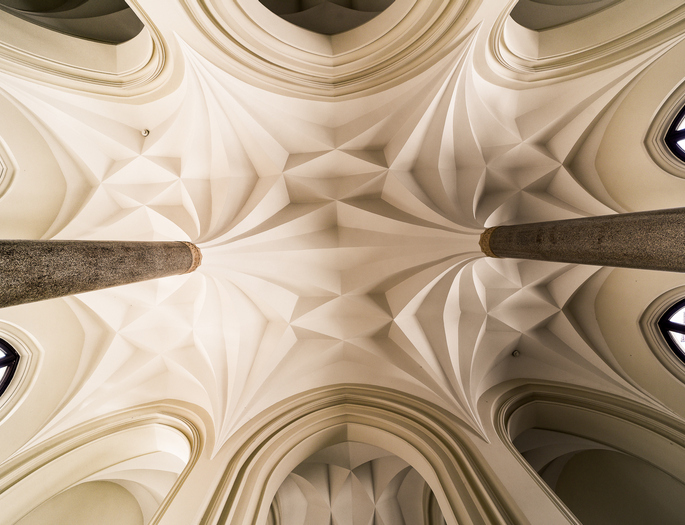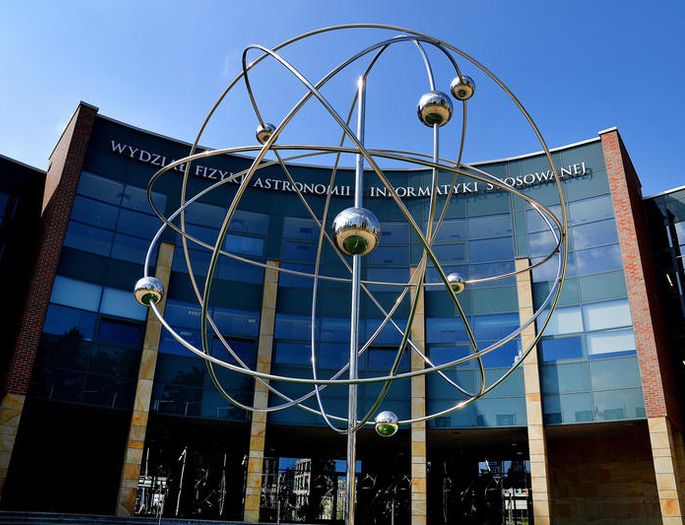
Mikołaj Frączyk, Przemysław Nogły and Mateusz Sikora will establish three new Dioscuri Centres at the Jagiellonian University in Kraków. The three Polish-born scientists, currently working in Germany, Switzerland and the US, will return to Poland over the next year and a half thanks to support from the Dioscuri Programme. The winners of the fourth international call for Dioscuri Centres published by the Max Planck Society and the National Science Centre Poland (NCN) will join the five Dioscuri Centres already established in Warsaw.
'The decision to locate three new Dioscuri Centres of Scientific Excellence at the Jagiellonian University brings me great satisfaction. For many years, we have been systematically increasing the quality of research projects at the Jagiellonian University, with special focus on their interdisciplinarity. One of the most important aspects of our development strategy is robust international collaboration, making the University widely recognisable as an attractive place to study and carry out ambitious research projects. I offer congratulations to the winners of this year’s Max Planck Society and National Science Centre joint programme and I am sure that at our university they will find inspiration and support which will lead to their dynamic development', stressed JU Vice-Rector for Research Prof. Piotr Kuśtrowski.
New Dioscuri leaders - short bios
Mikołaj Frączyk, currently Dickson Instructor at the University of Chicago, first studied Pure Mathematics at Jagiellonian University in Kraków before moving to the Université Paris-Sud in France. After completing his award-winning doctoral thesis in 2017 in France, he stayed as a post-doc at the Renyi Institute in Budapest and the Institute for Advanced Study in Princeton. In fall 2023, FrączykRoman Sauer from the Karlsruhe Institute of Technology (KIT).
Starting in summer 2022, Przemysław Nogły, currently a research group leader and Ambizione Fellow of the Swiss National Science Foundation at ETH Zurich, will establish the Dioscuri Centre for Structural Dynamics of Receptors at the Faculty of Biochemistry, Biophysics and Biotechnology of the Jagiellonian University. After studying Chemistry at the University of Opole (Poland), the structural biologist went to the Universidade Nova de Lisboa (Portugal), where he received his PhD in structural biochemistry within the Marie Curie Initial Training Network in 2013. He then conducted research as a Marie Curie Post-doctoral Fellow at the Paul Scherrer Institute (Switzerland) before moving to the Institute of Molecular Biology and Biophysics at ETH Zurich in 2017. Together with Joachim Heberle from Freie Universität Berlin, Nogły will use new experimental methods to investigate molecular mechanisms of proteins at his Dioscuri Centre.
Mateusz Sikora, currently a Postdoctoral Fellow at the MPI for Biophysics (Frankfurt) also affiliated with the University of Vienna, first studied at the Jagiellonian University and then earned his PhD at the Institute of Physics of the Polish Academy of Sciences in Warsaw. In 2012, he went to Austria as a postdoc at the Institute of Science and Technology (IST Austria). Since 2017, Sikora has been working at the MPI for Biophysics in Gerhard Hummer's group for theoretical biophysics within the framework of an Erwin Schrödinger Fellowship abroad funded by the Austrian Science Fund FWF. In the future, Hummer will support Sikora as his German partner in the establishment of the Dioscuri Centre for Modelling of Posttranslational Modifications at the Małopolska Centre of Biotechnology (at the Jagiellonian University).
Background: The Dioscuri Programme
The Dioscuri Programme, which was initiated by the Max Planck Society, aims to establish internationally competitive research groups in Central and Eastern Europe. Each of these Dioscuri Centres is financed with up to 1.5 million euros for a period of five years. The costs are shared equally between the Federal Ministry of Education and Research (BMBF) and the Polish Ministry of Education and Science (MEiN), while the host institutions in Poland provide the infrastructure. After its successful start in Poland, the programme has recently been extended to the Czech Republic, where a first call for Czech Dioscuri Centres is currently open.
The first call for Dioscuri Centres in the Czech Republic is open to applicants of all nationalities and from all scientific disciplines, including the humanities, social sciences, life sciences and natural sciences, until 25 July 2022. For more information, please visit the call website: https://www.mpg.de/18506651/dioscuri-programme-launch-of-first-call-for-proposals-in-the-czech-republic
Source: Max Planck Society





